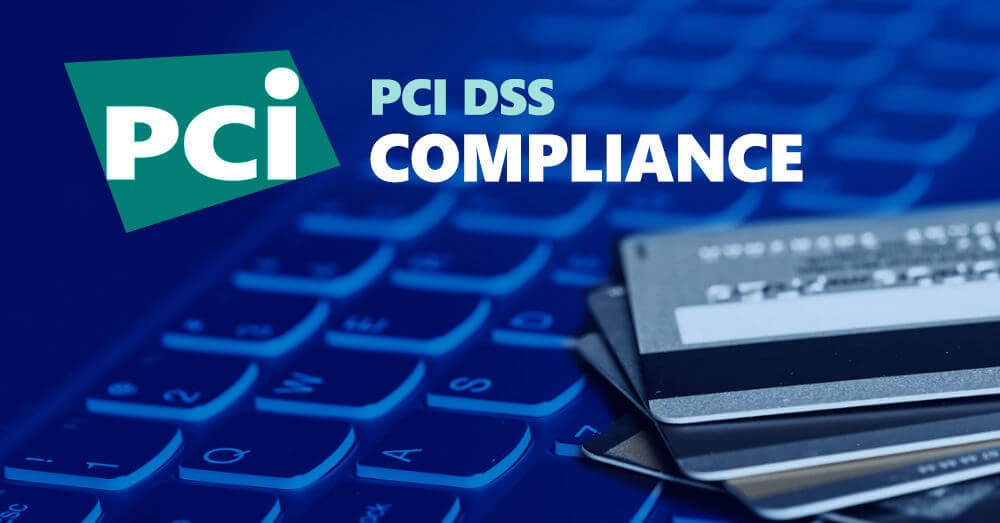
UAE has emerged as a leading hub for innovation and commerce in the Middle East. With a rapidly growing e-commerce sector, UAE businesses are increasingly processing sensitive payment card data. This digital transformation, however, necessitates robust security measures to protect customer information and maintain trust. Here’s where the Payment Card Industry Data Security Standard (PCI DSS) comes into play.
This blog serves as a comprehensive guide for UAE businesses, outlining the essentials of PCI DSS compliance in 2024-2025. We’ll delve into the significance of compliance, explore the key requirements of the updated PCI DSS v4.0, and provide actionable steps for achieving and maintaining a secure payment environment. We’ll also highlight how ValueMentor, a trusted security advisor, can assist you on your crucial journey.
Data breaches are a growing concern globally, with the UAE experiencing a significant rise in cyberattacks in recent years. A 2023 report by Statista revealed that UAE businesses witnessed a staggering 35% increase in data breaches compared to the previous year [1]. These breaches often target sensitive payment card information, leading to financial losses, reputational damage, and potential regulatory fines for non-compliant businesses.
Enforcing PCI DSS compliance protects not only your customers’ financial information but also your business’s reputation and bottom line. Here are some compelling statistics to consider:
According to a 2023 IBM study, data breaches cost businesses an average of $4.35 million per stolen record [2].
A 2023 Ponemon Institute report found that companies with strong cybersecurity practices experience a 27% lower cost of data breaches [3].
By prioritizing PCI DSS compliance, UAE businesses can demonstrate their commitment to data security and build trust with their customers. This, in turn, fosters a secure and thriving e-commerce ecosystem within the UAE.
The PCI Security Standards Council (PCI SSC) released the updated PCI DSS v4.0 in March 2024. This enhanced standard introduces a phased approach, focusing on continuous security improvements. Here’s a breakdown of the key requirements and changes:
Phased Implementation : PCI DSS v4.0 takes a phased approach, with immediate requirements that must be implemented as soon as possible. These include strengthening access controls, enhancing detection capabilities, and implementing a formal vulnerability management program. Additional best practices are mandated by March 31, 2025 .
Focus on Defense-in-Depth : The updated standard emphasizes a layered defense strategy, requiring businesses to implement a combination of security controls to mitigate risks. This includes network segmentation, intrusion detection and prevention systems (IDS/IPS), and regular security testing.
Zero Trust Architecture : PCI DSS v4.0 encourages the adoption of a zero-trust architecture, where all users and devices must be authenticated and authorized before accessing any system or data. This approach minimizes the potential damage caused by breaches.
Evolving Threat Landscape : The updated standard acknowledges the ever-changing threat landscape. It emphasizes the importance of continuous monitoring and adaptation to address emerging security vulnerabilities.
Complying with PCI DSS might seem overwhelming, but it’s a necessary step for UAE businesses accepting card payments. Here’s a roadmap to achieving and maintaining compliance:
Understand Your PCI DSS Merchant Level : The PCI SSC categorizes businesses based on the volume of card transactions they process annually. Knowing your merchant level will determine the specific requirements you need to fulfill.
Conduct a Self-Assessment : Evaluate your current security posture by performing a Self-Assessment Questionnaire (SAQ). This document helps identify areas that need improvement to meet PCI DSS standards.
Develop a PCI DSS Compliance Plan : Create a comprehensive plan outlining the steps you’ll take to achieve and maintain compliance. This plan should include details on control implementation, resource allocation, and timelines.
Implement Security Controls : Put into place the necessary security measures based on your PCI DSS requirements. This may involve upgrading and reconfiguring firewalls.
Maintain Security Measures : Compliance is not a one-time effort. Regularly monitor your systems, update software, conduct security awareness training for employees, and address any identified vulnerabilities promptly.
Seek Expert Guidance : Consider partnering with a Qualified Security Assessor (QSA) for assistance with PCI DSS assessments and ongoing compliance validation. ValueMentor, a trusted security advisor with extensive experience in the UAE market,
ValueMentor can be your one-stop shop for navigating the complexities of PCI DSS compliance.
Tailored Compliance Solutions : We understand that every business has unique needs. Our team of security professionals will work closely with you to assess your current security posture, develop a customized compliance plan, and identify the most effective security controls for your environment.
Expert Guidance and Support : Our PCI DSS Consultant possess in-depth knowledge of PCI DSS requirements and extensive experience conducting security assessments. We’ll guide you through every step of the compliance process, ensuring you meet all the necessary standards.
Streamlined Implementation : We can assist with the implementation of essential security controls, including firewalls, intrusion detection systems, and access control solutions. We can also recommend reputable vendors and ensure proper integration with your existing infrastructure.
Ongoing Support and Maintenance : Maintaining compliance is an ongoing process. ValueMentor offers ongoing support to help you stay vigilant against evolving threats. We can provide security awareness training for your employees, conduct regular vulnerability assessments, and help you adapt your security posture to address new challenges.
By prioritizing PCI DSS compliance, UAE businesses can build a strong foundation for secure digital transactions. This not only protects sensitive customer information but also fosters trust and loyalty, contributing to a thriving e-commerce ecosystem within the UAE. Remember, achieving and maintaining compliance requires a proactive and ongoing commitment. Don’t hesitate to seek guidance from experienced security advisors like ValueMentor. With the right support, you can navigate the path to PCI DSS compliance with confidence and build a secure digital future for your business.